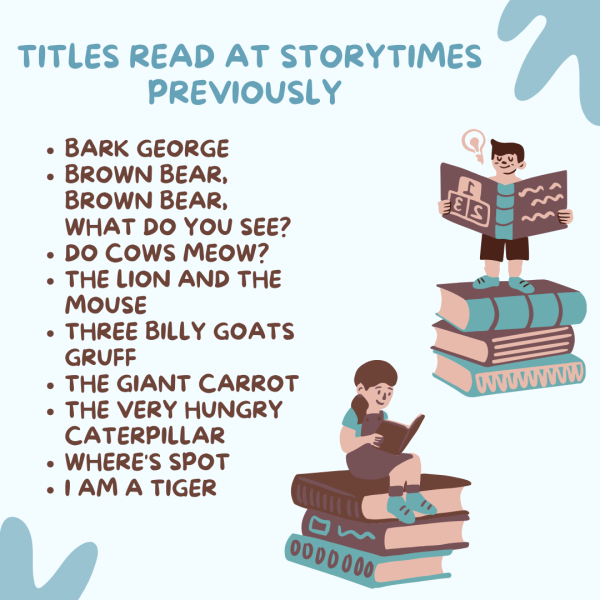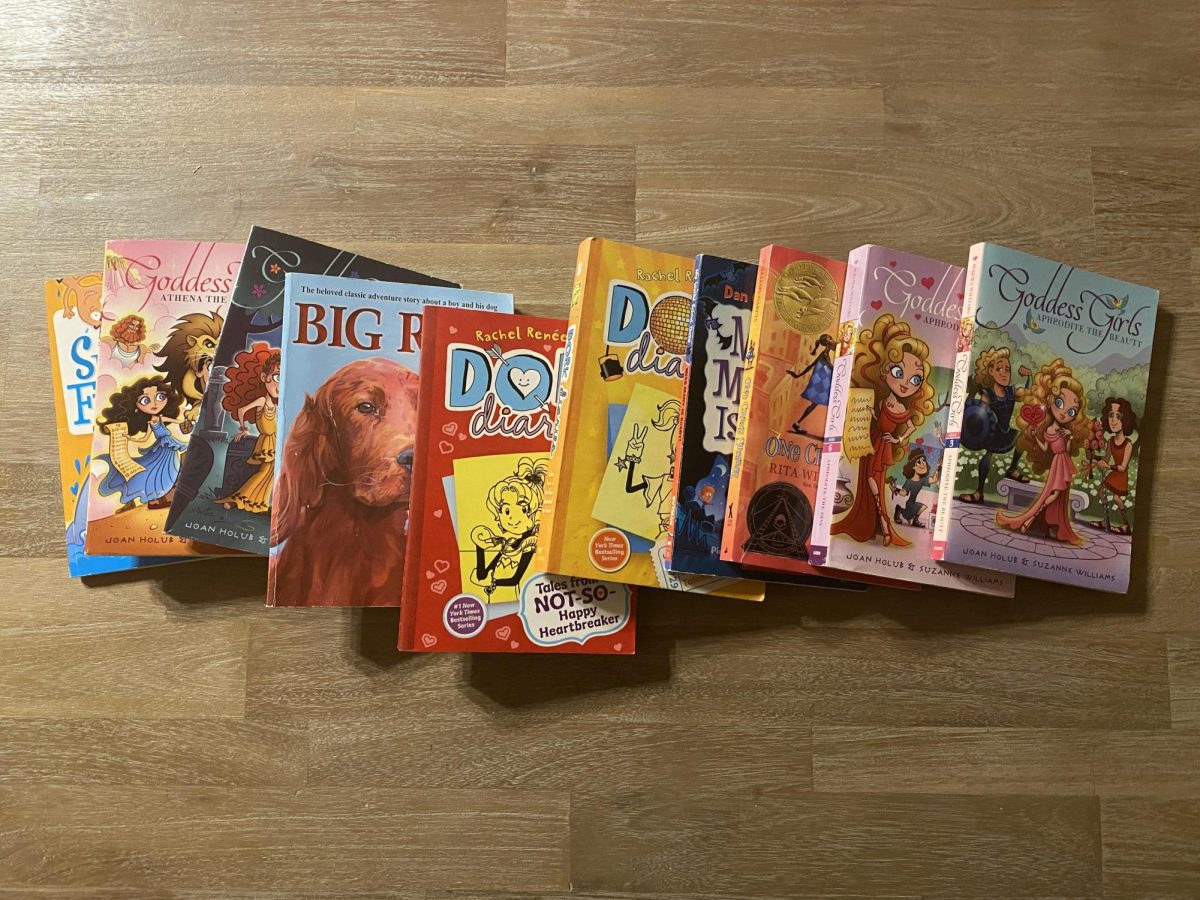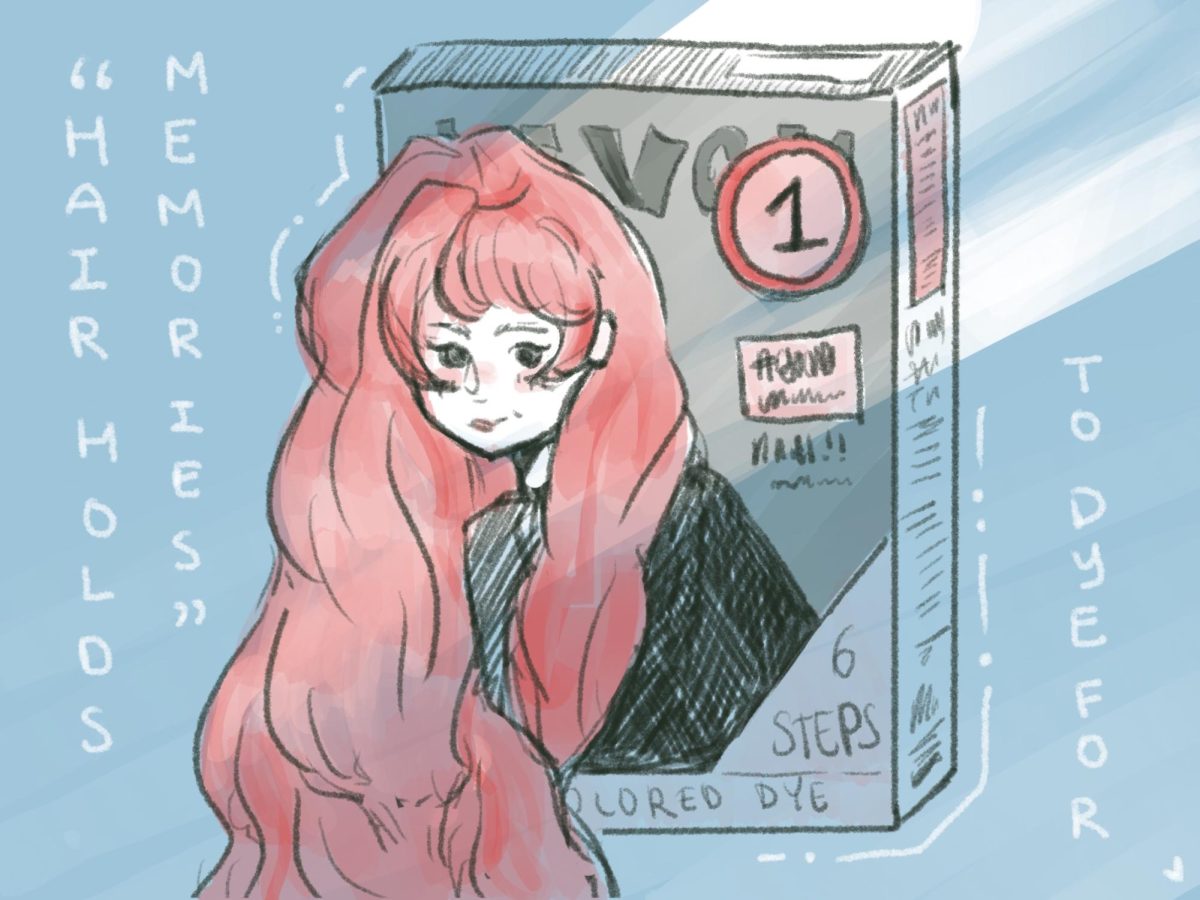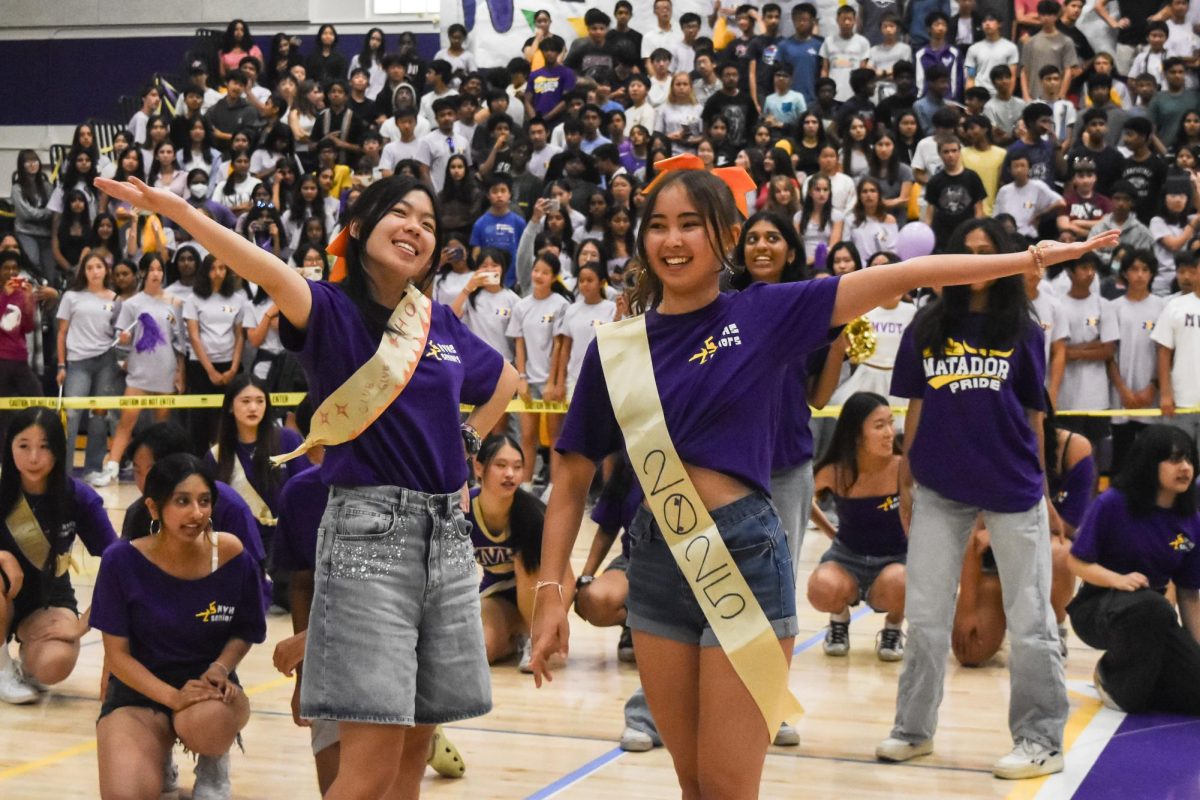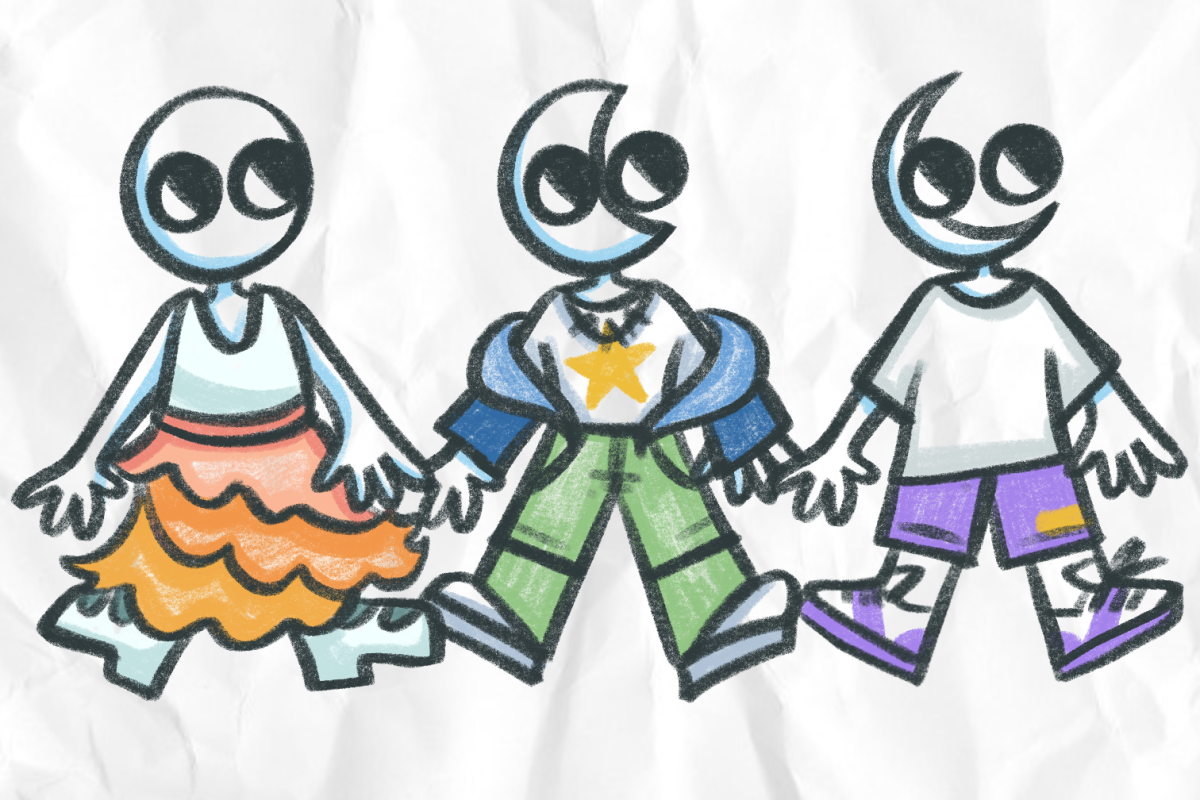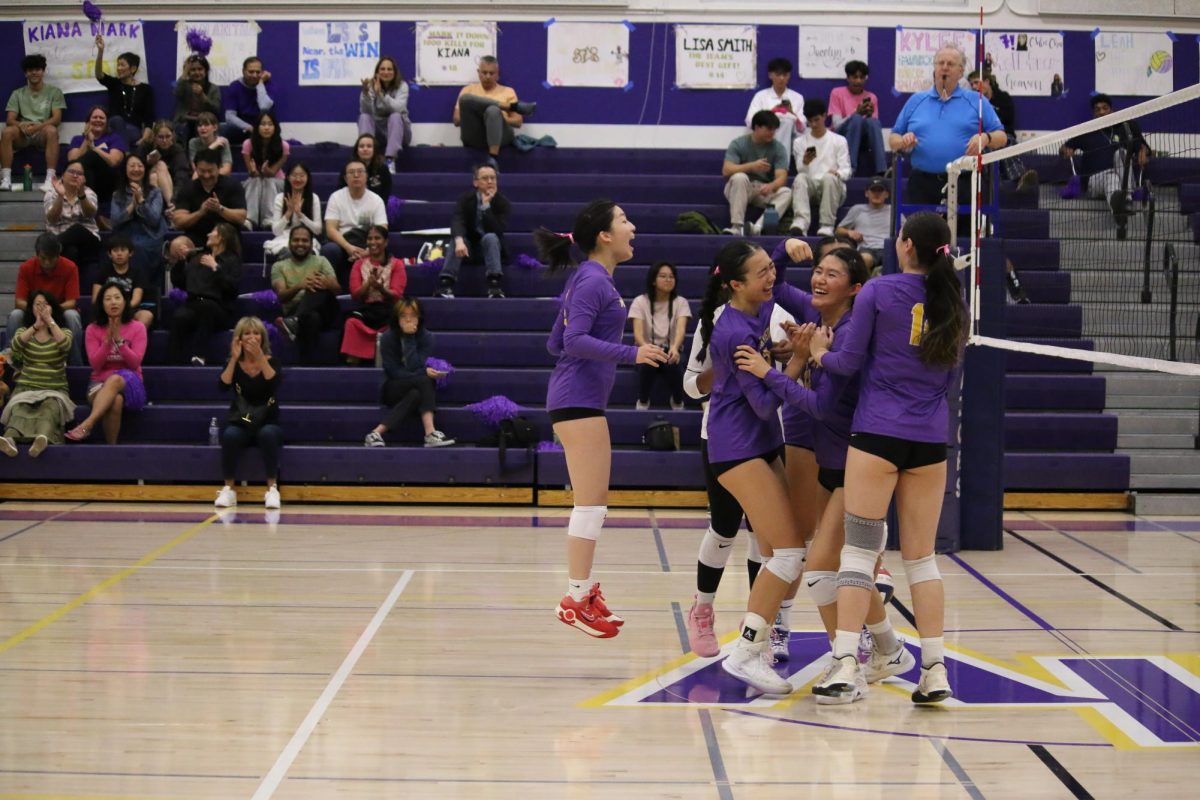Every night during her early years of parenthood, avid Saratoga library patron Farin Soroushi would cozy up with her son, who was less than a year old at the time, with a picture book in her hand for him to gaze as she narrated the story to him. She intended for this nightly routine to build up his intellect in order to make him smarter but eventually came to cherish the memories of her and her son falling asleep together while they read.
With kids becoming increasingly more dependent on digital media, many people still make an effort to keep youth audiences engaged with reading. Parents and librarians refer to different methods and resources to fascinate children, whether it be reading to them, allowing them to pick out their own books or pushing them to engage in different activities.
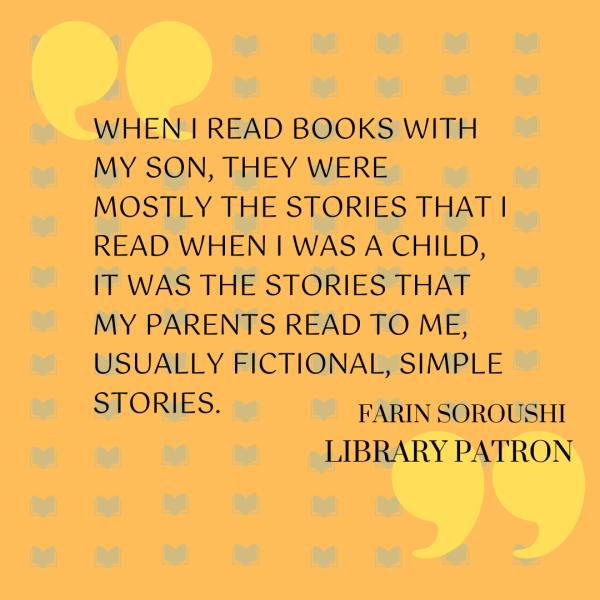
“When I read books with my son, they were mostly the stories that I read when I was a child,” Soroushi said. “It was the stories that my parents read to me, usually fictional, simple stories. Now [that he’s older,] he’s reading by himself.”
De Anza Middle College junior Florence Le, who previously attended MVHS, was also inclined to read various fiction books as a kid such as Dork Diaries, Diary of a Wimpy Kid and Harry Potter as a child. After observing Le’s interest in reading, her parents were influenced to push her younger brother to read as well, which developed his interest in reading.
“My little brother is really into reading too,” Le says. “I guess it’s something he does a lot and he reads some of the same books — Percy Jackson and [all the others]. So we share that hobby in the family.”
Saratoga Library librarian Saralyn Otter believes that it’s important for parents to expose their children to books early on. Research by ScienceDirect indicates that exposure to books positively benefits children by increasing a child’s academic success and vocabulary. Having access to books, being read to and observing people read to them allows kids to learn how to hold and flip through physical books. According to Otter, allowing kids to choose and own their own books gives them a sense of ownership, allowing them to view reading as a fun activity that they want to incorporate into their routine.
While Le did read as a kid, she finds that she reads more now since it wasn’t as trendy to read back then. With media influences such as Booktube and BookTok, she now feels more inclined to read.
“In high school, it comes up [more often] because of the media and how you’re influenced by [it],” Le said. “I think I have friends that [read and] we keep in touch. I can talk about books and we have a book club. So in that sense, I enjoy reading more currently because of my connection with other people.”
For Soroushi, it’s also important to her to maintain connections through reading as she reads with her children, but with her growing responsibilities at work and other parental duties, she isn’t able to find a lot of quiet time to read. To make up for not being able to read with her son as much, Soroushi makes it a priority to continue exposing her son to more books by taking him to the library often.
While Otter believes it’s important for parents to keep children engaged with books at home, she also feels they should also expand on their resources by utilizing local libraries. While the library provides access to a large variety of books, many also hold activities such as sing-alongs, puppet shows, storytimes and arts and crafts to keep children involved in community activities.
Storytime is one of the activities the library regularly holds. According to Otter, the librarians break the activities up into different categories to help kids build different skills. The main categories are reading and singing, which the librarians lead to keep the kids engaged and build their literacy skills. According to Otter, storytimes also help kids socialize and get a sense of the atmosphere they will experience in kindergarten or even preschool.
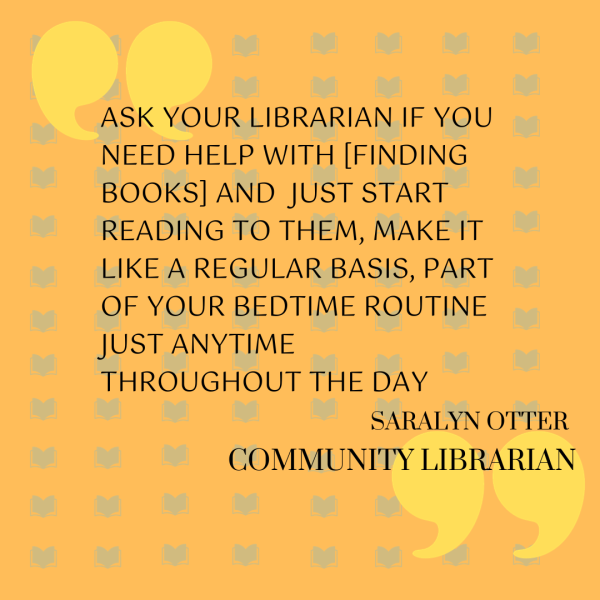
“[While picking the books,] the [librarians are] looking at vocabulary and how the story flows,” Otter said. “You want good [stories] with something that’s interesting, ones that rhyme or repeat certain references that help kids with early literacy skills. Also, one of the big things is modeling for the parents [to give them] ideas of things [they] can do at home with their kids on their own.”
According to Otter, many parents take advantage of the resources the library provides, going out of their way to regularly bring their children to events such as storytimes. She also urges parents to work on their children’s relationships with books to be able to create positive experiences and build their literacy skills.
“Check out books and start when they’re babies, even little babies [and even as toddlers],” Otter said. “I know they run around and it seems like they’re not paying attention but they’re absorbing, start them young [by] getting that age-appropriate books. Ask your librarian if you need help with [finding books] and just start reading to them, make it a regular basis, part of your bedtime routine just anytime throughout the day. Let them see you enjoying reading [as] a normal, fun activity.”
